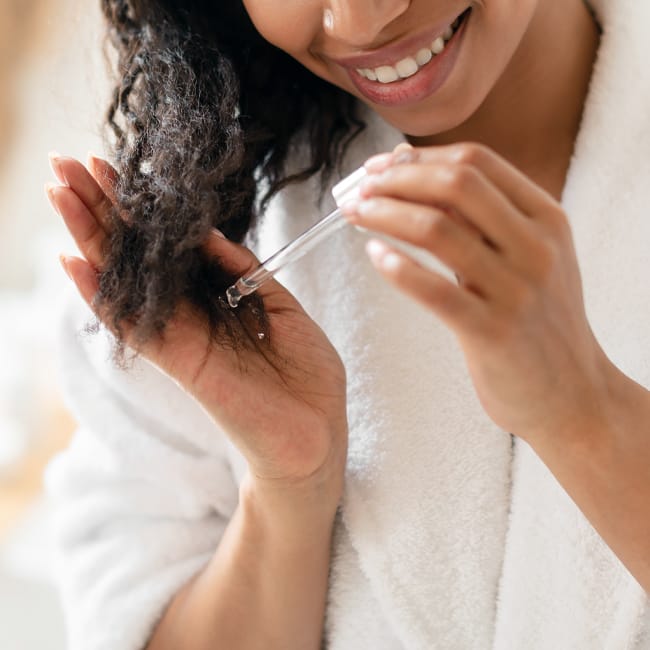If you’ve spotted gray hairs appearing on your scalp or the crown of your head in your twenties and thirties, you’re not alone. While graying hair is a natural part of the aging process, it can be disheartening to find gray strands before you expect them.
Ultimately, we wondered, what does it mean if you’re noticing gray tresses prematurely? We spoke with dermatologists and hair experts to find out more about early graying, why this happens and how to slow it if you wish to, through your diet and haircare products.
Read on for tips, suggestions and insight from Dr. Anna Chacon, M.D., board-certified dermatologist and writer for My Psoriasis Team and Ghanima Abdullah, hair expert and cosmetologist at The Right Hairstyles.


When Gray Hair Strikes Early: Reasons and Remedies
By the time they turn 50, most women will notice ample graying when it comes to their locks. In their forties and thirties, it is common to notice gray hairs as well. In their twenties, however, finding grays would be referred to as premature graying, Chacon explains.
"Going gray early or premature graying can occur in some women due to a variety of reasons," she says. "It's a natural process that happens when the pigment-producing cells (melanocytes) in the hair follicles start to die or become less active." It happens, she stresses, "when melanocytes stop producing melanin, the pigment that gives hair its color." This can be due to "genetic factors, B12 deficiencies, poor nutrition, or certain medical conditions," Chacon points out.
She notes that "premature graying is usually not a health warning and is more common than people think." While it can sometimes be associated with certain health conditions, it's "often related to genetic factors," she continues. "If you have a family history of early graying, you may be more likely to experience it yourself."

Another reason for premature graying, Abdullah adds, is stress. "The overlying cause of premature graying is stress," Abdullah says. "Stress can cause chemical changes in the body and hair follicles that remove melanin from the hair. This leads to gray hair."
The presence of hydrogen peroxide in the hair follicles, she continues, also causes hair to lose its pigment. "This might also be exacerbated by the common use of hair dyes that contain peroxide," Abdullah warns.

Caring For Gray Hair: Essential Products And Diet
If you're finding gray hairs before you turn 30 and want to dye your hair, there are two kinds Abdullah says to avoid for your health: "permanent hair colors and bleach." Both of these, she says, contain peroxide, which will "only make you go gray quicker."
Any chemical hair treatment that needs a neutralizer, like perms and straighteners, "also use hydrogen peroxide as part of that process to stop the chemical action of the product," Abdullah goes on, "so these aren't recommended either." "When you start going gray, your grays may seem to have a mind of their own," Abdullah says.
"They are known to be drier than other hairs and may be different in texture as well, so it's important to use products like hair masks to help to keep your hair hydrated and prevent it from becoming dry and brittle," she advises.

If you don't like the color, she suggests choosing "natural hair dyes like cassia, chamomile and henna to help disguise the grays." If you do like the color, you can always use a "purple shampoo to get your hair to remove yellow tinges and shine white," she recommends.
To truly care for graying hair, Chacon concludes, it's essential to "use moisturizing shampoos and conditioners to keep your hair healthy and hydrated." She warns to "avoid harsh chemicals and heat styling tools that can damage your hair."
Overall, Chacon notes, "maintaining a healthy lifestyle can also help slow the graying process." This includes "eating a balanced diet rich in vitamins and minerals, getting regular exercise, reducing stress, and avoiding smoking."
If you notice a significant amount of gray hair at a young age, she reiterates, "it may be worth discussing with a healthcare provider to rule out any potential underlying health issues."


























